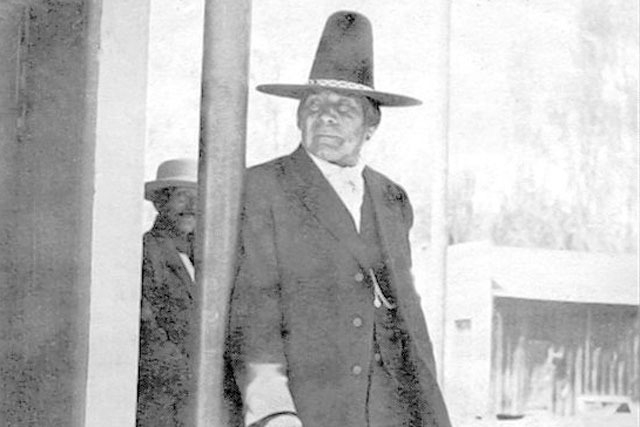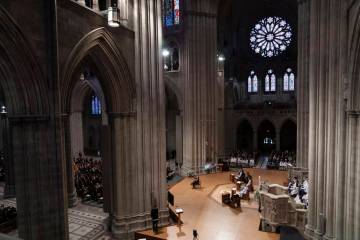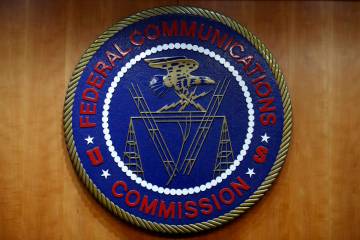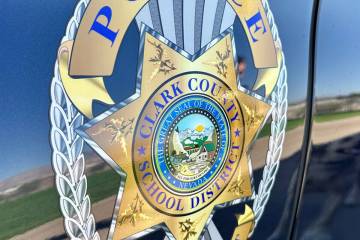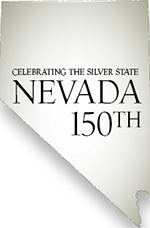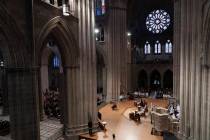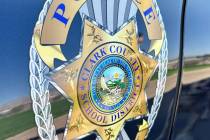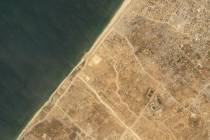Paiute prophet Wovoka preached about peace
SCHURZ - Americans today remember the Paiute holy man Wovoka, the most famous Nevada Indian, for all the wrong reasons.
He was a tall, strong man who went by the Anglo name of Jack Wilson and grew up on a ranch near Yerington. He preached a message of peace and acceptance of the white man’s conquering of their Nevada. Wovoka was seen as a prophet who predicted if Indians were patient for only a few more years, the whites would vanish and once again Indians would live happily in a land with abundant wildlife. Even their ghosts or ancestors would return.
Do “not hurt anybody or do harm to anyone,” Wovoka preached. “You must not fight. Do right always. Do not refuse to work for the whites and do not make any trouble with them.”
But in American history, Wovoka (1856-1932) is more remembered as the Paiute Indian shaman whose Jan. 1, 1889, vision of the coming heaven on earth for Indians produced the “Ghost Dance” and contributed to the last major battle in America’s “Indian Wars”: the Battle of Wounded Knee in Pine Ridge, S.D., on Dec. 29, 1890.
Nearly 300 Lakota Sioux died when the panicky 7th Cavalry killed men, women and children whose crime was performing a round dance. The Ghost Dance and their Ghost Shirts — or so the Sioux believed from mistaken messages Kicking Bear and Short Bull brought from Wovoka — were supposed to make them impervious to bullets.
Twenty soldiers were awarded the Medal of Honor, a decision that Indians want rescinded
To this day, Wovoka is remembered most for the worst massacre in Native American history, not as a prophet who preached Jesus Christ’s message of acceptance, hope and peace. That message he probably learned from attending his adopted father David Wilson’s United Presbyterian Church.
Wovoka’s grave in Schurz, just off U.S. Highway 95 about 25 miles south of Yerington, has been upgraded in recent years by the addition of a wrought-iron fence and benches where people can sit and pay respects for a misunderstood man who was revered by Indians across the nation.
Just who was he?
“He definitely was a man of power,” said author Michael Hittman, who began visiting Nevada Paiutes in 1965 and wrote a Wovoka biography with tribal permission in 1989. “He could demonstrate it. He really felt he could control the elements. He said, ‘I can destroy the world if I want to. I choose not to.’ Basically he was a good man. People came from all around the country to talk to him.”
Hittman isn’t one to call him a prophet or messiah but notes parallels between Wilson’s messages and behavior and that of Jesus Christ.
Wovoka is Paiute for wood cutter, although other than cutting his own firewood, there are no reports that he used that trade. Hittman said Wilson earned his living mainly by doctoring tribal members and operating a mail order business to sell items to his fans.
He was born in 1856 in Mason Valley near Yerington at a time when whites were expropriating lands where Native Americans had lived for thousands of years. Four years after his birth, Paiute warriors were defeated by whites in the Pyramid Lake War. Fort Churchill was established, 35 miles east of Carson City, and the Indians wars ended in Nevada.
Some believe Wovoka’s father may have been Tavibo, an Indian shaman who prophesied that all whites would be swallowed up by the earth. He taught followers to dance in circles and sing religious songs.
Tavibo died in 1870, and Wovoka went to live on Wilson’s ranch. He took the name Jack Wilson.
As he grew older, he gained a reputation as a medicine man and learned tricks, including one where he was seen to catch bullets. It was said he would control the weather, levitate objects and make ice form in rivers in the summer.
Wilson’s messianic journey began with his vision during a solar eclipse.
Ethnologist James Mooney gathered his words, although Hittman is skeptical whether anyone in a time before tape recorders properly translated Wovoka, whose English was limited.
“Do not tell the white people about this. Jesus is now upon the earth. He appears like a cloud. The dead are still alive again. I do not know when they will be here; maybe this fall or in the spring. When the time comes there will be no more sickness and everyone will be young again. When the earth shakes, do not be afraid; it will not hurt you. I want you to dance every six weeks (for five straight days and four nights). Make a feast at the dance and have food that everybody may eat. Then bathe in the water. That is all.”
Like Christ, Wilson was 33 at the time of his vision. Critics contend he was suffering from scarlet fever that broke with the eclipse.
This message came at a time of great sadness for Indians. Their hunter-gather world had ended over the previous 40 years. They were confined to reservations and subsisted on manual labor they performed for whites.
Almost immediately Wilson’s message spread across the West. Indian leaders in other parts of the country, who could travel for free on trains at the time, arrived in Yerington to meet Wovoka and hear his message. They included the Lakota Sioux, who took their bastardized version back to Pine Ridge.
The dream of the Indian heaven all crashed at Wounded Knee Creek, but Jack Wilson remained revered in Indian circles to his death on Sept. 20, 1932.
He would make frequent trips to reservations, where he was presented gifts and money, Hittman said. In 1924, cowboy actor Tim McCoy brought him to the set of a movie he was making in Northern California, and the Indian extras treated him as a prophet.
He and his wife, Mary, had three children. Their marriage lasted 50 years. Her death came one month before her husband’s.
Hittman said Wovoka should be remembered most for preaching “honesty, the importance of hard work, the necessity of nonviolence and the imperative of interracial harmony.”
Contact Capital Bureau Chief Ed Vogel at evogel@reviewjournal.com, or 775-687-3901.



